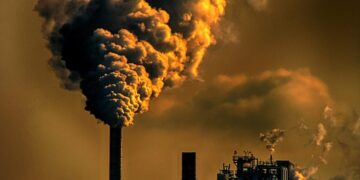Facing the Heat: The Devastating Impact of Global Warming on Human Health
Global warming is a pressing issue that is having a significant impact on human health around the world. As temperatures rise and extreme weather events become more frequent, the health of individuals is increasingly at risk. In this article, we will explore the various ways in which global warming is affecting human health, from heat-related illnesses to the spread of infectious diseases. We will also discuss what can be done to mitigate these effects and protect the well-being of individuals everywhere.
Heat-Related Illnesses
One of the most direct effects of global warming on human health is the increase in heat-related illnesses. As temperatures continue to rise, individuals are at a higher risk of suffering from heat exhaustion, heatstroke, and other heat-related conditions. This is especially true for vulnerable populations such as the elderly, children, and individuals with pre-existing health conditions.
Heat-related illnesses can have serious consequences, ranging from dehydration and heat cramps to organ damage and even death. It is important for individuals to take precautions during periods of extreme heat, such as staying hydrated, staying indoors during the hottest parts of the day, and avoiding strenuous physical activity.
Impact on Infectious Diseases
Global warming is also having a significant impact on the spread of infectious diseases. As temperatures rise, the habitats of disease-carrying insects such as mosquitoes and ticks expand, leading to an increase in the transmission of diseases such as malaria, dengue fever, and Lyme disease. In addition, changes in temperature and precipitation patterns can also affect the spread of waterborne diseases such as cholera and typhoid.
Climate change is making it easier for infectious diseases to spread to new areas and populations, putting individuals at risk of contracting serious illnesses. It is crucial for public health authorities to monitor and respond to these changing patterns in order to prevent outbreaks and protect the health of individuals.
Impact on Air Quality
Global warming is also affecting air quality, which can have serious implications for human health. As temperatures rise, the formation of ground-level ozone and other air pollutants increases, leading to higher levels of smog and particulate matter in the air. These pollutants can exacerbate respiratory conditions such as asthma and chronic obstructive pulmonary disease (COPD), as well as increase the risk of heart disease and stroke.
Poor air quality can have a significant impact on individuals’ health, especially for those with pre-existing respiratory conditions. It is important for individuals to be aware of air quality alerts in their area and take precautions such as staying indoors on high pollution days and using air purifiers to reduce exposure to harmful pollutants.
Impact on Food and Water Security
Global warming is also affecting food and water security, which can have serious implications for human health. Changes in temperature and precipitation patterns can affect crop yields and food production, leading to food shortages and malnutrition. In addition, rising temperatures can also affect the availability and quality of drinking water, leading to increased risk of waterborne diseases.
It is important for communities to adapt to these changing conditions by implementing sustainable agriculture practices, conserving water resources, and ensuring access to safe and nutritious food for all individuals. By addressing food and water security issues, we can help protect the health and well-being of individuals around the world.
What Can Be Done to Mitigate the Effects of Global Warming on Human Health?
There are several steps that can be taken to mitigate the effects of global warming on human health. One key strategy is to reduce greenhouse gas emissions through measures such as transitioning to renewable energy sources, improving energy efficiency, and promoting sustainable transportation options. By reducing emissions, we can help slow the rate of global warming and protect the health of individuals.
In addition, it is important for communities to implement adaptation measures to protect against the impacts of climate change. This can include improving infrastructure to withstand extreme weather events, implementing early warning systems for heatwaves and other climate-related hazards, and enhancing public health surveillance and response systems to monitor and address emerging health threats.
Individuals can also take steps to protect their own health in the face of global warming. This can include staying informed about local climate and health risks, taking precautions during extreme heat events, and reducing their own carbon footprint through actions such as conserving energy, reducing waste, and supporting sustainable practices.
Conclusion
Global warming is having a devastating impact on human health, from heat-related illnesses to the spread of infectious diseases. It is crucial for individuals, communities, and governments to take action to mitigate these effects and protect the well-being of individuals everywhere. By reducing greenhouse gas emissions, improving air quality, ensuring food and water security, and implementing adaptation measures, we can help safeguard the health of current and future generations.
By working together to address the challenges of global warming, we can create a healthier and more sustainable world for all individuals. It is important for everyone to take action now to protect the health of individuals and communities around the world.











